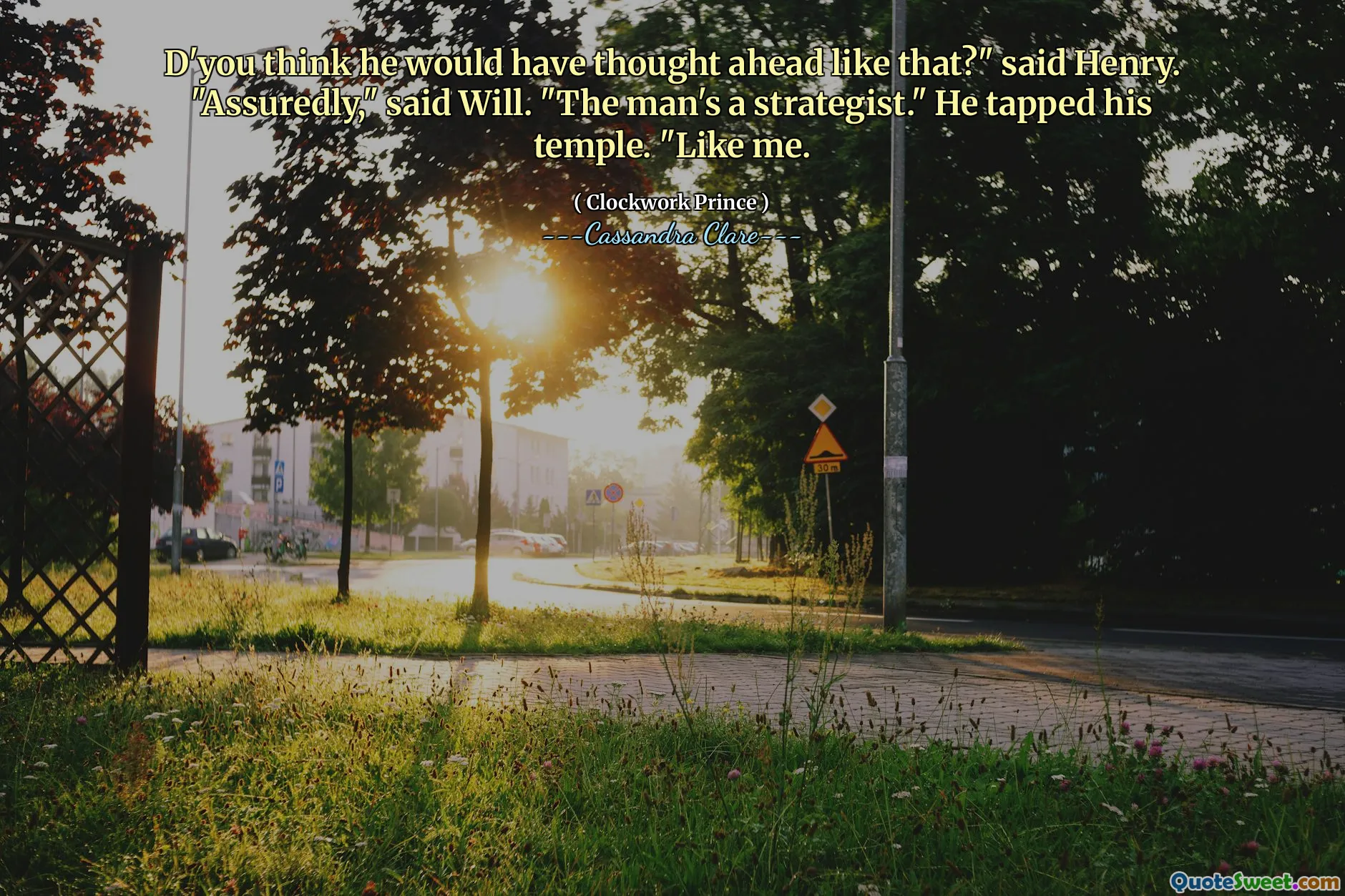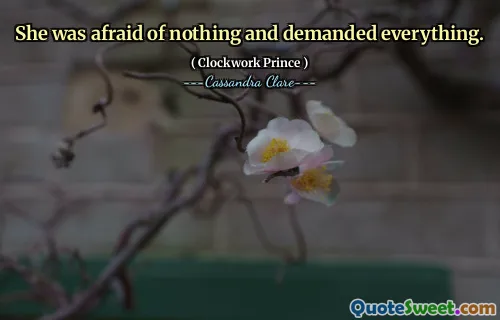
D'you think he would have thought ahead like that?" said Henry. "Assuredly," said Will. "The man's a strategist." He tapped his temple. "Like me.
This excerpt highlights the importance of strategic thinking and foresight in human interaction and decision-making. Will's confident assertion that he is a strategist, coupled with his gesture of tapping his temple, underscores his self-awareness and pride in his intellectual faculties. The dialogue also emphasizes the value placed on cleverness and planning within social and perhaps even competitive settings. Strategists are often seen as individuals who can anticipate future challenges and opportunities, thus positioning themselves advantageously. What stands out here is the subtle acknowledgment of a shared understanding or an admiration for strategic prowess. Henry's questioning indicates curiosity or perhaps doubt, which Will confidently affirms. This exchange invites reflection on how we perceive intelligence—not merely as knowledge but as the ability to think ahead, adapt, and maneuver through complex situations. In everyday life, this trait is crucial for problem-solving, conflict resolution, and leadership. It is also interesting to observe that Will taps his temple, a gesture repeatedly associated with thinking or intelligence, reinforcing his self-image as a tactician. Such traits can inspire us to develop our own mental agility and strategic thinking skills to navigate life's uncertainties effectively. The quote ultimately celebrates the mind's power when it is used wisely and confidently, illustrating that self-awareness and mental discipline can be as vital as any other skill in achieving success or understanding others.



